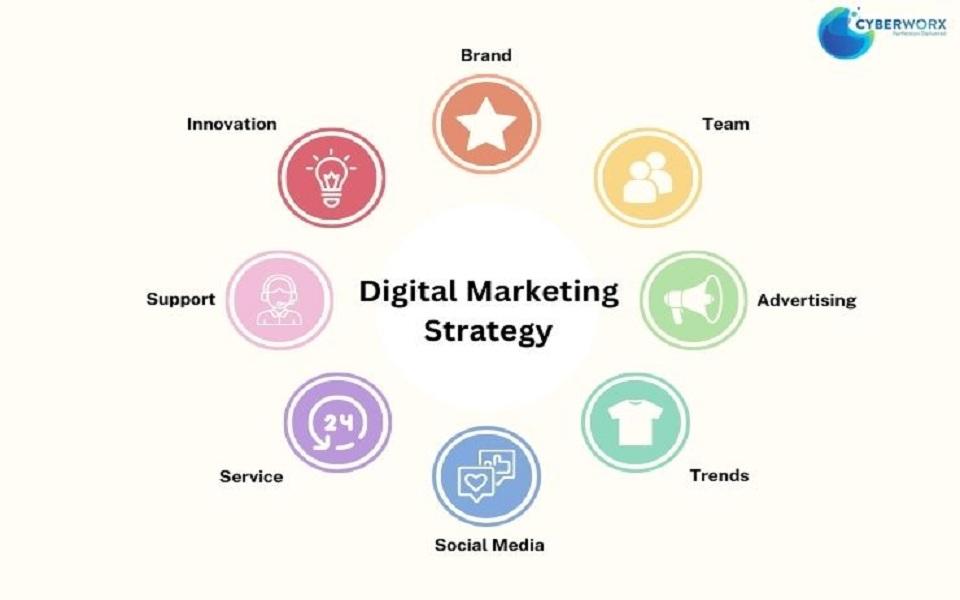



In today’s fast-paced digital era, where online interactions dominate every aspect of our lives, businesses must adapt and leverage the power of digital marketing to stay relevant and competitive. The digital landscape is vast and ever-evolving, encompassing various channels and strategies that can propel a brand to new heights. In this comprehensive guide, we will explore key elements of digital marketing, shedding light on effective strategies to boost online visibility, engage audiences, and drive business success.
At the core of any successful digital marketing strategy lies Search Engine Optimization (SEO). SEO is the practice of optimizing a website to rank higher on search engine result pages, thereby increasing organic traffic. The importance of SEO cannot be overstated, as it ensures that your brand is discoverable by users actively searching for products or services related to your industry.
Effective SEO involves keyword research, on-page optimization, and building high-quality backlinks. By understanding your target audience’s search behavior and tailoring your content to meet their needs, you can enhance your website’s visibility and credibility.
Content marketing is intricately linked with SEO, playing a pivotal role in attracting and retaining online audiences. Creating valuable, relevant, and engaging content not only satisfies user intent but also establishes your brand as an authoritative voice in your industry. From blog posts and articles to infographics and videos, diverse content formats can cater to different audience preferences and improve overall user experience.
Social media has become an integral part of our daily lives, presenting businesses with unprecedented opportunities to connect with their target audience. Social media marketing involves creating and sharing content on social media platforms to achieve marketing and branding goals.
Identifying the right social media channels for your business is crucial. Whether it’s Facebook, Instagram, Twitter, LinkedIn, or emerging platforms like TikTok, each channel has its unique user demographics and engagement dynamics. Crafting a social media strategy that aligns with your brand voice and resonates with your audience can significantly amplify your online presence.
In the competitive digital landscape, paid advertising is an essential component of a well-rounded marketing strategy. Platforms like Google Ads, Facebook Ads, and LinkedIn Ads allow businesses to target specific demographics, interests, and behaviors, ensuring that their messages reach the most relevant audience.
The key to successful paid advertising lies in understanding your target audience and creating compelling ad copy and visuals. Utilizing analytics tools to measure the performance of your ads enables you to refine and optimize your campaigns for maximum ROI.
Email marketing remains a powerful tool for building and nurturing customer relationships. Through personalized and targeted email campaigns, businesses can keep their audience informed about new products, promotions, and industry insights.
Segmentation is a key aspect of effective email marketing. By categorizing your audience based on their preferences, behaviors, or demographics, you can deliver tailored content that resonates with specific segments. Automation tools further streamline the process, allowing for timely and relevant communication without constant manual intervention.
No digital marketing strategy is complete without robust analytics and a commitment to continuous improvement. Analytics tools, such as Google Analytics, provide valuable insights into user behavior, website performance, and the effectiveness of marketing campaigns.
Regularly analyzing these metrics allows businesses to identify what works and what doesn’t, enabling them to make data-driven decisions. A cycle of testing, analyzing, and optimizing ensures that your digital marketing efforts evolve with the changing dynamics of the online landscape.
In conclusion, navigating the digital marketing landscape requires a holistic approach that combines SEO, content marketing, social media, paid advertising, email marketing, and analytics. By understanding the unique strengths of each channel and integrating them into a cohesive strategy, businesses can unlock the full potential of digital marketing, driving growth and success in the ever-evolving online world.
Source: geometry dash